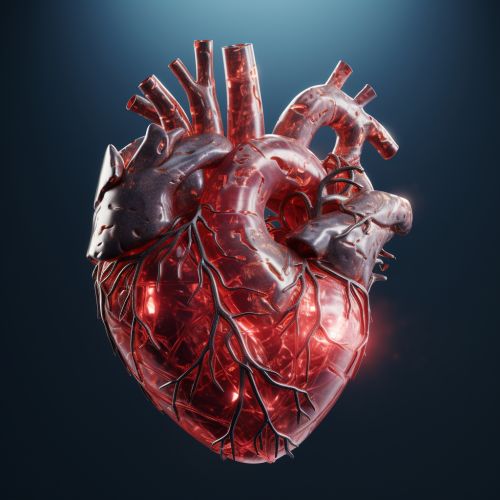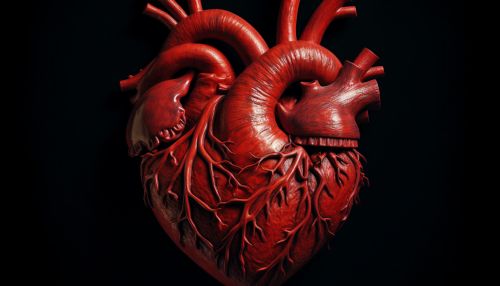Dilated cardiomyopathy
Overview
Dilated cardiomyopathy is a disease of the heart muscle that primarily affects the heart's main pumping chamber, the left ventricle. The left ventricle becomes enlarged (dilated) and can't pump blood as efficiently as a healthy heart can. The decreased heart function can affect the lungs, liver, and other body systems. DCM is one of the most common types of cardiomyopathy.
Causes
The exact cause of dilated cardiomyopathy is often unknown, but several factors can contribute to the condition. These include coronary artery disease, heart attack, high blood pressure, viral infections of the heart, diabetes, thyroid disease, alcoholism, and certain genetic conditions. In some cases, dilated cardiomyopathy is a result of a previous heart condition such as myocarditis, heart valve abnormalities, or congenital heart disease.
Symptoms


Symptoms of dilated cardiomyopathy can occur at any age and may progress slowly or rapidly. They may include fatigue, shortness of breath (dyspnea), irregular heartbeats (arrhythmias), lightheadedness or fainting, and swelling of the legs, ankles, and feet (edema). In severe cases, dilated cardiomyopathy can lead to heart failure, blood clots, or sudden death.
Diagnosis
Diagnosis of dilated cardiomyopathy involves a thorough medical history, physical examination, and several tests. These tests may include an electrocardiogram, echocardiogram, cardiac MRI, and blood tests. In some cases, a cardiac catheterization or biopsy of the heart muscle may be performed.
Treatment
Treatment for dilated cardiomyopathy aims to improve heart function, reduce symptoms, and prevent complications. This may involve medications, lifestyle changes, and in severe cases, devices or surgery. Medications may include beta blockers, ACE inhibitors, diuretics, and anticoagulants. Lifestyle changes can involve a low-sodium diet, alcohol abstinence, and regular exercise. Devices used can include a pacemaker or implantable cardioverter-defibrillator, and surgeries can include heart transplant or ventricular assist device implantation.
Prognosis
The prognosis for individuals with dilated cardiomyopathy varies widely depending on the cause, severity, and response to treatment. Some people may live normal lives with minimal symptoms, while others may experience significant disability or even sudden death. Regular follow-up with a healthcare provider is important for managing the condition and monitoring for potential complications.
Research
Research into dilated cardiomyopathy is ongoing, with scientists investigating the genetic causes of the disease, new diagnostic tools, and innovative treatment strategies. Clinical trials are also being conducted to evaluate the effectiveness of new medications and interventions.
